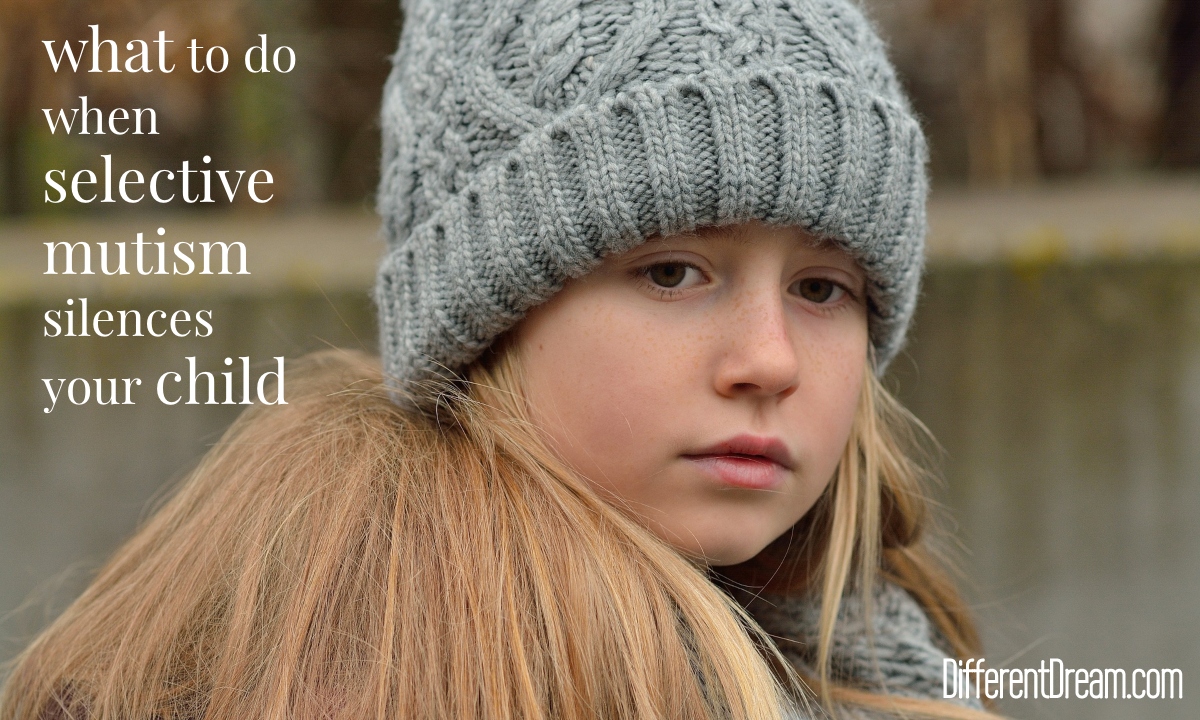Selective Mutism: 4 Ways to Lift Up Your Child

Selective mutism is a mystery to most of the general public and to many parents. Guest blogger Lisa Pelissier sheds light on the condition in an interview with her daughter and by explaining 4 ways they support her.
She was three when she stopped talking. At first it was just adults. It wasn’t unusual, I thought, for a three-year-old to be shy with adults. But then she refused to talk to her grandmother, someone with whom she had a close relationship. This was troubling, but she was three. Everyone told us she would outgrow it. Lots of kids go through phases when they don’t talk, especially preschoolers. By the time she was five she wouldn’t talk to children outside the family. By the time she was six she wouldn’t talk to her cousins. At seven the list of people grew smaller and she refused to talk out loud to me, her mother, in public.
We knew it wasn’t just a phase. Phases don’t last four years.
What could we do? We had to make her talk.
In desperation I went on social media to ask if anyone I knew had any information about selective mutism. By this time I had a name for it. (God bless the internet!) A friend from my high school youth group responded. She had overcome selective mutism as a child. Her parents had sent her away to a special school for a year and it had worked: she came home talking. There was no way I wanted to send my child away. My friend and I kept talking. One thing led to another and she led me to a counselor who worked with art therapy. And it helped.
Step by step, our daughter recovered her speech. At eleven, she’s not done yet. She still has pockets of people with whom she is silent, people to whom she stopped speaking as a tiny child. But most of the time she speaks normally. To my delight, she agreed to be interviewed for this blog post.
Interview with my daughter:
Q: How does it feel when you talk to people?
A: Uncomfortable. I can’t comfortably speak. Sometimes it could give me more anxiety, like when I try to speak with people I don’t usually talk to.
Q: Did you pick the people you could talk to or not talk to?
A: No
Q: How did you get better?
A: I moved somewhere and new people are easier to talk to because I haven’t known them. It makes me feel weird because they’ve known me not speaking, then suddenly I talk. I don’t like a lot of attention unless I’m really close with them.
Q: Did therapy help?
A: Yes. Especially since I got prizes. It motivated me.
Q: What advice would you give a kid with selective mutism?
A: If I met someone like that I would try to help them by explaining how I got better.
Q: Would you feel sorry for them?
A: Yes, because they can’t talk to people. Life is better because I can talk to people. I’m still working on it though.
Q: How many people do you still have trouble speaking to?
A: I still can’t talk to people who knew me non-talking, like all our friends and family in California where we used to live.
What steps did we take?
- Break the tasks into baby steps. Pick one person. Whisper to them. Then, a different day, talk out loud with that person. Get a sticker for each victory. And a reward for a page full of stickers. Person by person, she began to reclaim her voice.
- Work on anxiety-reducing techniques: deep breathing, relaxation, visualization.
- I’m not sure this is something I’d recommend, but it worked for her… Cash! Grandma paid her to talk to her. Twenty-five cents a word at first, and then twenty-five cents for a sentence. One day she came home with about twenty bucks. It was working. (We’ll work on her mercenary little heart later.)
- Go new places where she doesn’t know anyone. We found that in her mind, she had not a list of people she could talk to, but a list of people she couldn’t talk to and places at which she must be silent. People she had never met could not be on a list. She could talk to them, if we reminded her before we went that they weren’t “on the list”.
If this describes your journey, you are not alone. Your child is valuable and precious and they can overcome selective mutism, not to become the person you always wanted them to be, but to become more and more the person God created them to be.
Do you like what you see at DifferentDream.com? You can receive more great content by subscribing to the monthly Different Dream newsletter and signing up for the daily RSS feed delivered to your email.

By Lisa Pelissier
Lisa Pelissier lives in Oregon where she is a homeschooling mother of four (three with disabilities) and author of three middle-grade fiction novels. Lisa owns SneakerBlossom Books, offering Christian, classical homeschool Study Guides and curriculum. She also works as a freelance copy editor, an artist, and a tutor. In her spare time Lisa enjoys playing the piano and fretting about things over which she has no control. Email Lisa at sneakerblossom@yahoo.com or connect on Facebook.
Subscribe for Updates from Jolene
Related Posts
Parenting a Child with Disabilities Isn’t the Grief Olympics
Guest blogger Laura Spiegel explains why parenting a child with disabilities isn’t the grief Olympics. You don’t have to win at grieving.
Transitioning Kids with Disabilities to Adulthood
Guest blogger Sandy Ramsey-Trayvick gives practical tips for transitioning kids with disabilities to adulthood.
EA/TEF Awareness Day 2022 is Here!
Celebrate EA/TEF Awareness Day by looking back on ten diverse Different Dream blog posts by EA/TEF parents and survivors.






0 Comments